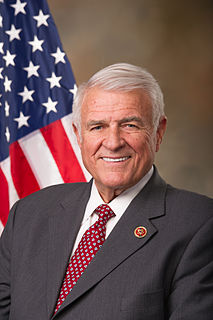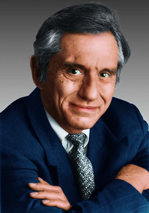A Quote by Noam Chomsky
In the United States, one of the main topics of academic political science is the study of attitudes and policy and their correlation. The study of attitudes is reasonably easy in the United States: heavily-polled society, pretty serious and accurate polls, and policy you can see, and you can compare them.
Related Quotes
I have looked at public opinion polls in France in the late 1940s and early 1950s during the height of Marshall Plan aid. They had a very negative attitude towards the United States then. There were negative attitudes towards the United States because of Vietnam. There were negative attitudes about the United States when Reagan wanted to deploy intermediate range ballistic missiles. I don't think the president should base his foreign policy on American public opinion polls, let alone foreign public opinion polls.
Foreign policy always has more force and punch when the nation speaks with one voice. To remain secure, prosperous, and free, the United States must continue to lead. That leadership requires a president and Congress working together to fashion a foreign policy with broad, bipartisan support. A foreign policy of unity is essential if the United States is to promote its values and interests effectively and help to build a safer, freer, and more prosperous world.
The main implication is a remapping of the world in line with American policy and American interests. Natural resources are limited, and the United States wants to make sure that its own population is kept supplied. The principle effect of this will be for the United States to control large parts of the oil which the world possesses.
I think that it's very important to have the United States' engagement in many situations we have around the world, be it in Syria, be it in the African context. The United States represents an important set of values, human rights, values related to freedom, to democracy. And so the foreign policy engagement of the United States is a very important guarantee that those values can be properly pursued.
Democracy, in the United States rhetoric refers to a system of governance in which elite elements based in the business community control the state by virtue of their dominance of the private society, while the population observes quietly. So understood, democracy is a system of elite decision and public ratification, as in the United States itself. Correspondingly, popular involvement in the formation of public policy is considered a serious threat. It is not a step towards democracy; rather it constitutes a 'crisis of democracy' that must be overcome.
What's going to be hard for the United States is that our policy for a long time has been a two-state solution; the Palestinians should have their own state. Now, the Palestinians are going to the U.N. and saying, 'We're having the U.N. vote to say we have our own state. Well, if that's your policy, United States of America, why are you vetoing it?' Which we will do.
We know what our policy is regarding the territory of Israel, Kosovo, Bosnia, Macedonia and even Nagorno-Karabakh. What is our policy regarding the territory of the United States? No nation in history has ever been as willing to accommodate those who would dismember it as has the United States of America. Trying to get a straight pro-U. S. comment out of a U.S. elected official is like trying to nail a custard pie to the side of a barn.




































